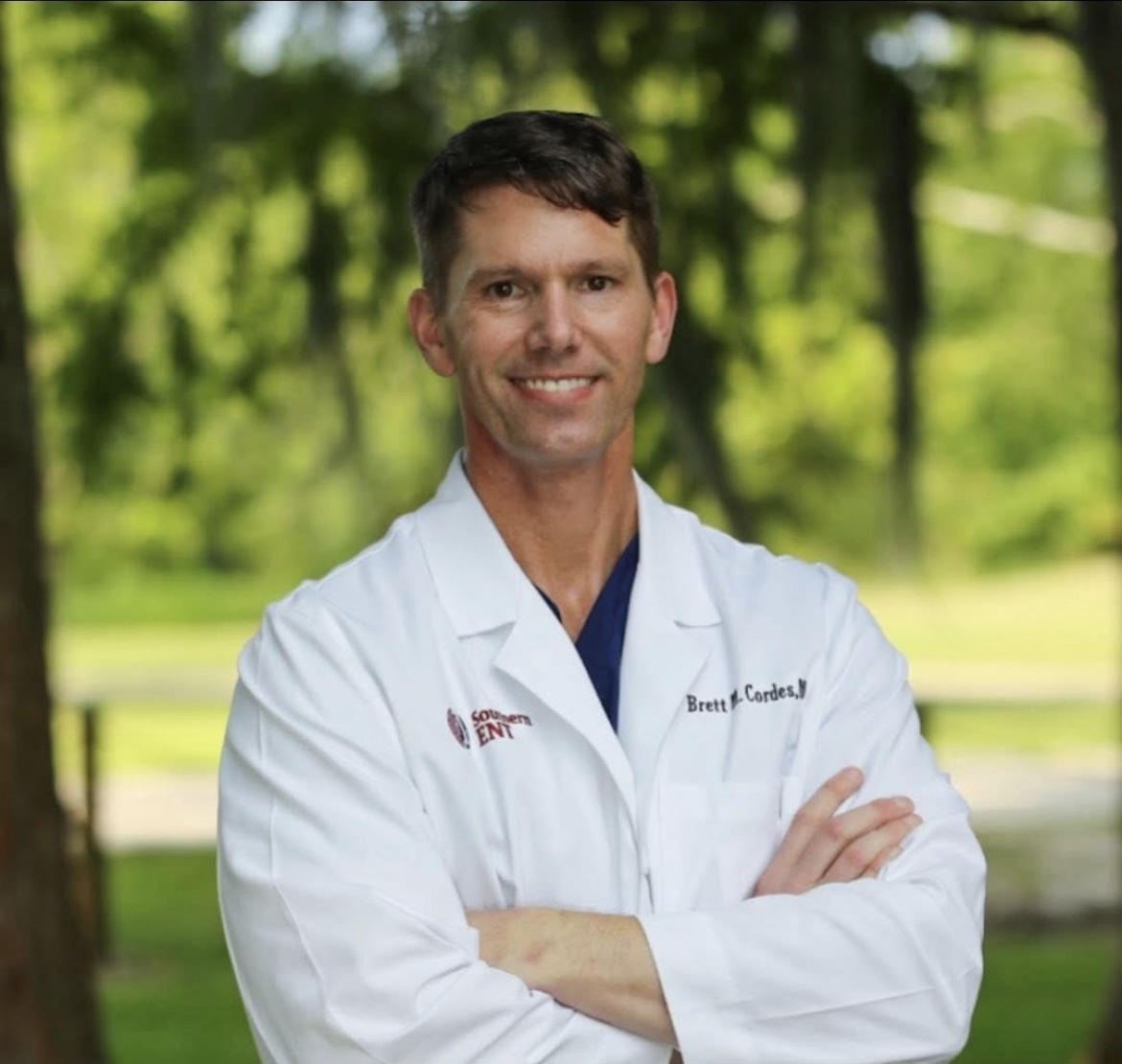
Doctors dedicate their lives to the well-being of others, often at the expense of their own. The demanding nature of the medical field, coupled with the immense responsibility placed on their shoulders, can lead to a pervasive sense of burnout. This blog post delves into the multifaceted issue of physician burnout, exploring its early warning signs, underlying causes, and, most importantly, proactive strategies for prevention. We will draw upon the experiences and insights shared in the recent episode of the "Conversations with Rich Bennett" podcast, Hydrocodone, Humility, And Hope With Dr. Brett Cordes, where Dr. Brett Cordes, "The Burnout Doc," candidly discusses his personal journey through addiction and recovery, ultimately finding his purpose in helping other physicians navigate the challenges of burnout.
Burnout isn't just a matter of feeling tired. It's a complex syndrome characterized by emotional exhaustion, depersonalization, and a diminished sense of personal accomplishment. It erodes empathy, impairs decision-making, and can have devastating consequences for both the physician and their patients. In this post, we will explore the often overlooked pressures of a surgical career, the importance of establishing firm boundaries, the restorative power of rest, and the therapeutic benefits of cultivating hobbies. We will also discuss why doctors often avoid seeking help and explore the value of coaching as a peer-to-peer approach. Ultimately, we aim to provide actionable strategies and resources to help physicians prioritize their well-being and reclaim their passion for medicine before burnout takes hold.
The Overworked Doctor
The image of the overworked doctor is practically ingrained in our cultural consciousness. Long hours, relentless schedules, and the constant pressure to make life-or-death decisions create a breeding ground for stress and exhaustion. While dedication to patients is admirable, it often comes at the cost of personal well-being.
The demands on physicians have only intensified in recent years due to factors such as increased administrative burdens, complex insurance regulations, and the growing prevalence of electronic health records. These external pressures, combined with internal drives for perfectionism and the desire to provide the best possible care, can lead to a chronic state of overload.
This constant state of stress can manifest in various ways, including physical symptoms like fatigue, headaches, and digestive issues, as well as emotional symptoms like irritability, anxiety, and depression. Over time, these symptoms can progress to full-blown burnout, impacting not only the physician's health but also their relationships and professional performance.
Dr. Brett Cordes' Journey: From Cancer Survivor to 'The Burnout Doc'
Dr. Brett Cordes' story, as shared in the "Conversations with Rich Bennett" podcast, is a powerful testament to the potential for resilience and transformation. A cancer survivor from a young age, Dr. Cordes channeled his experiences into a successful surgical career. However, beneath the surface of achievement lay a hidden struggle with burnout and addiction.
His journey highlights the fact that burnout can affect anyone, regardless of their background or accomplishments. Dr. Cordes' experience demonstrates that even those who appear to have it all together can be vulnerable to the insidious effects of chronic stress and the allure of unhealthy coping mechanisms.
After recovering from his addiction, Dr. Cordes dedicated his career to helping other physicians navigate the challenges of burnout. His personal experience provides him with a unique perspective and a deep understanding of the struggles faced by his peers. He is now a beacon of hope for those seeking to reclaim their passion for medicine and find a sustainable work-life balance.
The Hidden Pressures of a Surgical Career
While all areas of medicine carry significant stress, surgical specialties often face unique and particularly intense pressures. The demanding nature of surgical procedures, the long hours spent in the operating room, and the high stakes involved in each case can take a significant toll on a surgeon's physical and mental well-being.
Surgeons often face relentless pressure to perform flawlessly. The potential for complications and errors during surgery can lead to intense anxiety and self-doubt. Moreover, the need to constantly stay updated on the latest surgical techniques and technologies adds another layer of stress to their already demanding schedules.
Beyond the technical aspects of surgery, surgeons must also navigate complex interpersonal dynamics with colleagues, patients, and their families. Communicating difficult news, managing expectations, and dealing with emotional distress are all integral parts of the job, further contributing to the emotional burden they carry.
The Trigger: A 'Random Friday' and the Start of Opioid Addiction
Dr. Cordes' story illustrates how easily a seemingly innocuous event can trigger a downward spiral into addiction. In his case, a "random Friday" marked the beginning of his struggle with opioid addiction. This seemingly insignificant day underscores the importance of recognizing and addressing early warning signs of burnout before they lead to unhealthy coping mechanisms.
Often, individuals turn to substances like opioids as a way to alleviate the stress, anxiety, and emotional pain associated with burnout. These substances may provide temporary relief, but they ultimately exacerbate the underlying issues and create a cycle of dependence. Dr. Cordes' experience serves as a cautionary tale about the dangers of self-medicating and the importance of seeking professional help when struggling with burnout or addiction.
It's also important to recognize that addiction is a complex disease with multiple contributing factors. Genetics, environment, and personal experiences all play a role in an individual's susceptibility to addiction. Understanding these factors can help to reduce stigma and promote empathy for those struggling with substance use disorders.
High-Functioning Addiction: The Rationalization Trap
One of the most insidious aspects of addiction is the ability to rationalize and maintain a semblance of normalcy, even while spiraling out of control. High-functioning individuals, like physicians, are particularly adept at this, often using their intelligence and resourcefulness to conceal their struggles from others.
Dr. Cordes' story highlights the mental gymnastics involved in justifying and concealing his opioid use. He was able to maintain his surgical practice and family life while secretly battling addiction, demonstrating the deceptive nature of this disease. This ability to rationalize and compartmentalize can delay intervention and allow the addiction to progress unchecked.
Breaking free from the rationalization trap requires honesty, self-awareness, and a willingness to confront the truth about one's behavior. It also requires courage to seek help and break the cycle of secrecy.
Intervention and Isolation: Hitting Rock Bottom
For many individuals struggling with addiction, intervention from loved ones or colleagues can be a pivotal moment. However, the process can be painful and isolating, often leading to feelings of shame and guilt. Dr. Cordes' experience of intervention and subsequent rehabilitation during the COVID-19 pandemic underscores the challenges of seeking help and the importance of support during recovery.
The isolation of rehab during the pandemic likely compounded the emotional difficulties of recovery. Social support is crucial for overcoming addiction, and the lack of in-person interaction during that time may have made the process even more challenging. Nevertheless, Dr. Cordes persevered and emerged from rehab with a renewed sense of purpose and a commitment to helping others.
His journey highlights the importance of early intervention and the transformative power of recovery. It also underscores the need for accessible and compassionate treatment options for those struggling with addiction.
Burnout in Medicine: More Than Just Long Hours
While long hours undeniably contribute to physician burnout, the problem is far more complex than simply a matter of workload. Systemic issues, such as bureaucratic hurdles, insurance regulations, and the erosion of autonomy, play a significant role in creating a stressful and demoralizing work environment.
Many physicians feel overwhelmed by administrative tasks and paperwork, which detracts from the time they can spend directly caring for patients. The increasing emphasis on metrics and performance targets can also create a sense of pressure and undermine their professional autonomy. Furthermore, the challenges of navigating complex insurance systems and obtaining prior authorizations can be incredibly frustrating and time-consuming.
Beyond these external factors, the loss of connection with patients and the erosion of the doctor-patient relationship can also contribute to burnout. The increasing emphasis on efficiency and productivity can lead to a depersonalized approach to care, leaving physicians feeling disconnected from the very purpose of their profession.
Early Warning Signs of Burnout
Recognizing the early warning signs of burnout is crucial for proactive prevention. These signs can manifest in various ways, including emotional, physical, and behavioral changes. Some common early warning signs include:
- Chronic fatigue and exhaustion
- Increased irritability and cynicism
- Difficulty concentrating and making decisions
- Sleep disturbances
- Changes in appetite
- Withdrawal from social activities
- Increased use of alcohol or other substances
- Feelings of detachment and emotional numbness
- Decreased job satisfaction
If you are experiencing any of these symptoms, it is important to seek help from a trusted colleague, mentor, or mental health professional. Early intervention can prevent burnout from escalating and help you regain control of your well-being.
Boundaries, Rest, and Hobbies: Proactive Prevention
Establishing healthy boundaries, prioritizing rest, and cultivating hobbies are essential strategies for preventing burnout. These proactive measures can help physicians maintain a healthy work-life balance and protect their well-being.
Setting boundaries involves defining clear limits on work-related activities and protecting personal time. This may include setting specific work hours, avoiding work-related emails and calls during off-hours, and delegating tasks when possible. Prioritizing rest is also crucial for replenishing energy and reducing stress. This may involve getting adequate sleep, taking regular breaks during the workday, and scheduling time for relaxation and self-care.
Cultivating hobbies and interests outside of medicine can provide a much-needed sense of balance and fulfillment. Engaging in activities that bring joy and relaxation can help to reduce stress, improve mood, and foster a sense of purpose beyond professional accomplishments.
Why Doctors Avoid Seeking Help
Despite the prevalence of burnout in the medical field, many doctors are reluctant to seek help. This reluctance stems from various factors, including stigma, fear of judgment, and concerns about confidentiality and licensure.
The stigma associated with mental health issues can be particularly strong in the medical profession, where physicians are often expected to be strong and resilient. Many doctors fear that seeking help will be viewed as a sign of weakness or incompetence, potentially jeopardizing their careers. Concerns about confidentiality and the impact on licensure can also deter physicians from seeking mental health treatment.
Addressing these barriers requires a cultural shift within the medical profession to reduce stigma and promote a culture of support and well-being. Creating safe and confidential avenues for physicians to seek help is also crucial.
Coaching vs. Therapy: A Peer-to-Peer Approach
Coaching offers a unique and valuable approach to addressing physician burnout. Unlike traditional therapy, coaching focuses on empowering individuals to achieve their goals and overcome challenges through a collaborative and supportive relationship.
Coaches often have personal experience in the medical field, which allows them to understand the unique challenges faced by physicians. They can provide guidance, support, and accountability, helping physicians to identify their strengths, develop coping strategies, and create a more sustainable work-life balance. The peer-to-peer aspect of coaching can also reduce the stigma associated with seeking help and create a safe space for open and honest communication.
Coaching is not a substitute for therapy, particularly for individuals struggling with severe mental health issues or addiction. However, it can be a valuable tool for preventing burnout and promoting well-being among physicians.
Reclaiming Purpose: Serving Physicians Worldwide
Dr. Cordes' journey from addiction and burnout to becoming "The Burnout Doc" exemplifies the power of reclaiming purpose. By using his personal experiences to help other physicians, he has found a renewed sense of meaning and fulfillment in his career.
His work serves as an inspiration to others who may be struggling with burnout or feeling disconnected from their passion for medicine. It demonstrates that it is possible to overcome challenges and find a way to contribute to the well-being of others while also prioritizing one's own well-being.
Dr. Cordes' story also highlights the importance of connecting with others and building a supportive community. Sharing experiences and learning from others can be incredibly empowering and can help to reduce the feelings of isolation that often accompany burnout.
Resources and Support
There are numerous resources and support systems available for physicians struggling with burnout. These resources include:
- Employee assistance programs (EAPs)
- Peer support groups
- Mental health professionals
- Coaching programs
- Wellness programs
- Professional organizations
It is important to explore these resources and find the support that is right for you. Remember, seeking help is a sign of strength, not weakness.
Prioritizing Well-being in Medicine
Ultimately, preventing burnout requires a fundamental shift in the culture of medicine. Prioritizing physician well-being must become an integral part of the healthcare system. This includes addressing systemic issues that contribute to stress and burnout, promoting a culture of support and empathy, and providing accessible and confidential resources for physicians to seek help.
By creating a healthier and more sustainable work environment, we can ensure that physicians are able to provide the best possible care for their patients while also maintaining their own well-being. This benefits not only physicians but also the entire healthcare system.
In conclusion, burnout is a serious issue that affects many physicians. However, it is not inevitable. By recognizing the early warning signs, establishing healthy boundaries, prioritizing rest, cultivating hobbies, and seeking support when needed, physicians can prevent burnout and reclaim their passion for medicine. Dr. Cordes' story, as shared on the Conversations with Rich Bennett podcast, offers a powerful example of resilience and hope, reminding us that it is possible to overcome challenges and find a path towards well-being.










